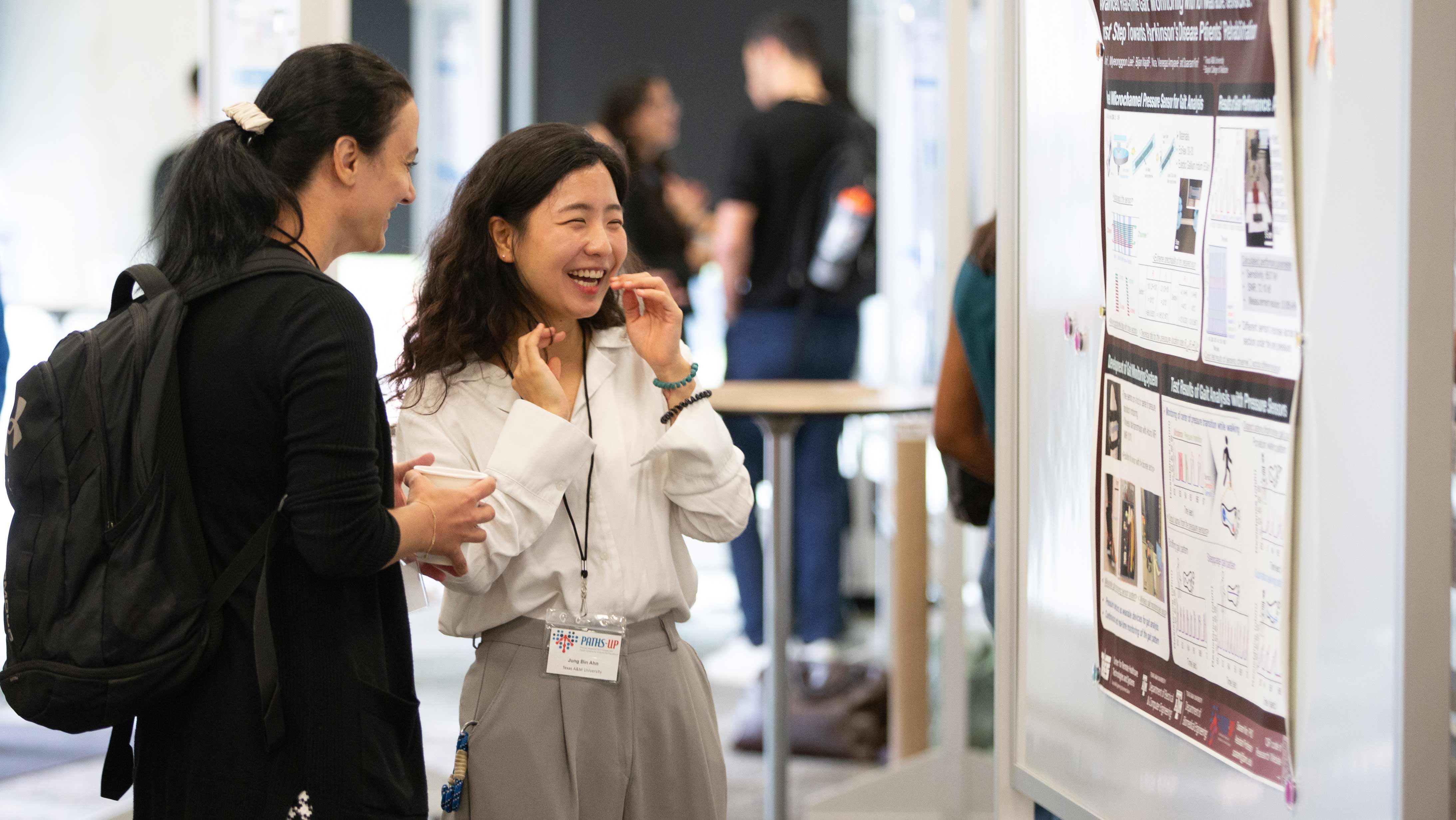
From telemedicine platforms to wearable devices and continuous glucose monitors coupled with artificial intelligence, digital health technologies are often created as the result of collaborations between clinicians and engineers. These efforts mark the beginning of what digital health innovations can achieve.
In late August, the Precise Advanced Technologies and Health Systems for Underserved Populations (PATHS-UP), a National Science Foundation-funded Engineering Research Center, led a Digital Health Workshop in Houston that hosted clinicians, researchers, and industry and government professionals.
The workshop, co-hosted by Texas A&M Engineering Experiment (TEES), Rice University, Baylor College of Medicine, and Houston Methodist, focused on applications for chronic conditions such as cardiovascular disease, diabetes, cancer and mental health.
“This workshop was uniquely focused on convergence research,” said Dr. Gerard Coté, director of PATHS-UP and James J. Cain Professor I in the Department of Biomedical Engineering at Texas A&M. “We intentionally brought together intellectually diverse researchers, clinicians, industry and other stakeholders that communicated across disciplines to understand the issues and challenges of these chronic diseases as well as to begin formulating and pursuing digital health solutions.”
At the workshop, clinicians from Baylor College of Medicine and Houston Methodist presented clinical needs in digital health for chronic conditions. PATHS-UP researchers and engineering, materials science, computer science, and behavioral psychology faculty from Texas A&M University, University of California, Los Angeles, Florida International University, and Rice University shared their research aimed at enabling digital health solutions.
We intentionally brought together intellectually diverse researchers, clinicians, industry and other stakeholders that communicated across disciplines to understand the issues and challenges of these chronic diseases as well as to begin formulating and pursuing digital health solutions.
Industry professionals, university innovation offices at Rice and Texas A&M, and venture capitalists discussed funding, entrepreneurship, and intellectual property for digital health startups. The workshop also held panel discussions, student pitch presentations, and collaborative opportunities, including a poster session.
“Reflecting on our recent visit to Houston for the PATHS-UP Engineering Research Center Digital Health Conference, I was truly inspired,” said speaker and participant Maria Fernanda Levis, CEO and founder of Impactivo Consulting. “I had the opportunity to explore the challenges and opportunities in digital healthcare, particularly for underserved communities.”
Levis noted that it was eye-opening to learn how advanced technology can empower health workers even when they face challenges like limited broadband access. “The discussions reinforced the importance of not just deploying innovative solutions, but also preserving the ‘human touch’ in patient care, ensuring technology enhances rather than replaces vital human interactions,” she said.
At the workshop's conclusion, Coté announced that PATHS-UP, in collaboration with the event's co-sponsors, will offer six to eight seed fund awards of up to $50,000 each. These grants are designed to initiate or enhance collaborations between clinical faculty at Baylor College of Medicine and Houston Methodist and their colleagues at Texas A&M, Rice, the University of California, Los Angeles, and Florida International University.
“This was a great workshop,” Coté said. “I believe PATHS-UP and our co-host institutions are poised to truly impact the health of patients with chronic illness, particularly in underserved communities globally that lack access and could benefit most from digital health solutions.”